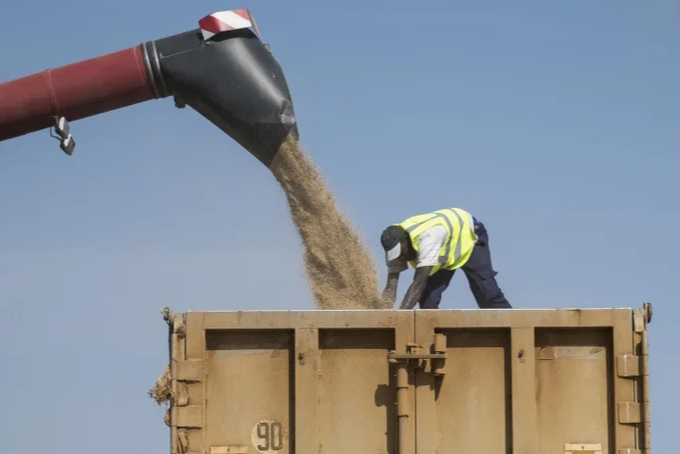November 20, 2025 | 10:12 GMT +7
November 20, 2025 | 10:12 GMT +7
Hotline: 0913.378.918
November 20, 2025 | 10:12 GMT +7
Hotline: 0913.378.918

According to the Global Nutrition Report, the prevalence of stunting is 31%, higher than the global average of 22%.
The program, announced by the US State Department together with the United Nations’s Food and Agriculture Organization and the African Union on Wednesday, will seek to identify crops in Africa’s five sub-regions that have historically not attracted research and investment. It will also assess how they will be affected by extreme climates.
“This push will seek to highlight these crops and aim to adapt both to climate change, to farmers needs and to the demands of the marketplace,” Cary Fowler, special envoy for global food security at the State Department, said. “We expect this will provide options for nutrition and better food security.”
Reducing Africa’s reliance on food imports would make it more resilient to external shocks and curb hunger. The UN estimates that more than 280 million people in Africa are experiencing hunger — a problem exacerbated by climate change, the Covid-19 pandemic and the impact of Russia’s war in Ukraine.
Unlike most crop adaptation efforts that focused on maize, rice and wheat, the Vision for Adopted Crops and Soils initiative will target traditional and indigenous African fruits and vegetables that have received much less attention, Fowler said.
Back on the Table
Many of them are rich in vitamins and micronutrients and important to lactating women and children in their first 1,000 days, in a continent where stunting levels are very high, he said. According to the Global Nutrition Report, the prevalence of stunting is 31%, higher than the global average of 22%.
Stunting can cause lower IQ, impaired brain development and weakened immune systems.
The initiative, which has the support of the Rockefeller Foundation and the African Orphan Crops Consortium, will also map soils for crop choice and the effective use of fertilizer, Fowler said.
The African Orphan Crops Consortium has been sequencing the genome of the so-called orphan crops since 2011, to accelerate breeding and mobilize talent by training, Allen Van Deynze, the scientific director at the consortium, said in an email.
These “nutritious crops already in African diets,” including yams, spider plants, agusi and tree crops like the Baobab, were traditionally the backbone of African food systems, he said.
(Bloomberg)

(VAN) Flagship partnership secures additional GBP 16.9 million to strengthen forest monitoring, transparency and country support to 2030.

(VAN) After a turbulent year for international development, the aid and assistance landscape has shifted, with donors rethinking how, where and why they support sustainable development.

(VAN) A new tool for measuring the economic value of farm animal welfare improvements has been developed, potentially transforming how consumers, retailers and the government evaluate animal welfare policies.

(VAN) The Amazon rainforest could face a renewed surge of deforestation as efforts grow to overturn a long-standing ban that has protected it.

(VAN) Conflict and violence are driving extreme hunger in six major crises.

(VAN) European Union member states are seeking to postpone the implementation of the bloc's anti-deforestation law by another year, an EU negotiating draft dated November 10 shows.

(VAN) Nearly 30 new avian influenza outbreaks have recently been reported in Germany, both on commercial poultry farms and in backyard flocks.